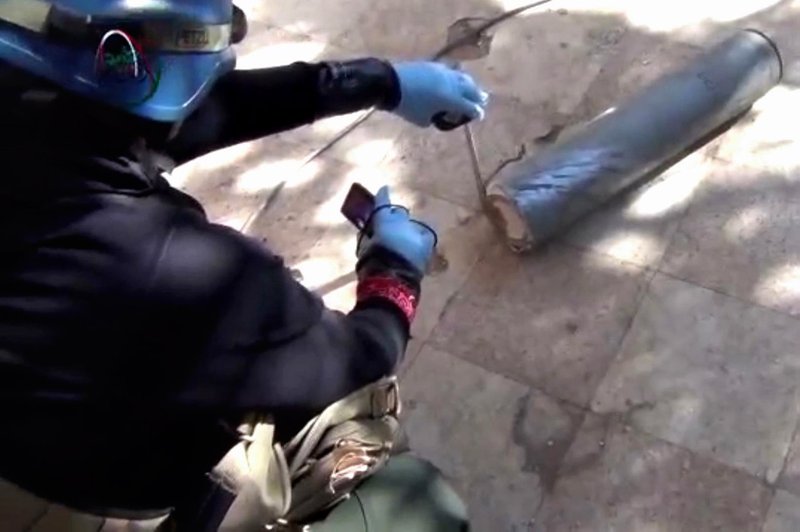BAGHDAD -- The Islamic State extremist group is aggressively pursuing development of chemical weapons, setting up a branch dedicated to research and experiments with the help of scientists from Iraq, Syria and elsewhere in the region, according to Iraqi and U.S. intelligence officials.
RELATED ARTICLES
http://www.arkansas…">Suspected mastermind deadhttp://www.arkansas…">Lawmakers push for war vote
U.S. intelligence officials don't believe the Islamic State has the capability to develop sophisticated weapons such as nerve gas that are most suited for a terrorist attack on a civilian target. So far the group has used mustard gas on the battlefield in Iraq and Syria.
Iraqi officials expressed concern that the large safe haven the extremists control since overrunning parts of Iraq and Syria last year has left Iraqi authorities largely in the dark over the Islamic State program.
"They now have complete freedom to select locations for their labs and production sites and have a wide range of experts, both civilians and military, to aid them," a senior Iraqi intelligence official said.
The official, like others from the Iraqi and U.S. intelligence agencies who have firsthand knowledge of the extremists' chemical weapons program, spoke on condition of anonymity to discuss the sensitive information.
So far, the only overt sign of the group's chemical weapons program has been the apparent use of mustard gas against Iraqi Kurdish fighters and in Syria. In mortars that hit Kurdish forces in northern Iraq earlier this year, preliminary tests by the U.S. showed traces of the chemical agent sulfur mustard.
Iraqi authorities fear the use could be expanded. Over the summer, Iraq's military distributed gas masks to troops deployed west and north of Baghdad, one general told the The Associated Press. A senior officer in Salahuddin province, north of Baghdad, said 25 percent of the troops deployed there were equipped with masks.
More recently, Iraq's military received from Russia 1,000 protective suits against chemical attacks, said Hakim al-Zamili, the head of the Iraqi parliament's security and defense committee.
The Islamic State has set up a branch tasked with pursuing chemical weapons, according to a senior Iraqi military intelligence officer and two officials from another Iraqi intelligence agency. They wouldn't give details of the program, including how many personnel it is believed to have or its budget.
But al-Zamili, citing intelligence reports he has access to, said the group has managed to attract chemical experts from abroad as well as Iraqi experts, including ones who once worked for Saddam Hussein's now-dissolved Military Industrialization Authority. The foreigners include experts from Chechnya and southeast Asia, the Iraqi intelligence officials said.
The Islamic State recently moved its research labs, experts and materials from Iraq to "secured locations" inside Syria, al-Zamili added -- apparently out of concern of an eventual assault on Mosul, Iraq's second largest city, captured by the Islamic State in summer 2014.
"Daesh is working very seriously to reach production of chemical weapons, particularly nerve gas," al-Zamili said, using an Arabic acronym for the group. "That would threaten not just Iraq but the whole world."
Still, U.S. intelligence officials say they don't believe the extremist group has the technological capability to produce nerve gas or biological agents, and the militants were more likely to harm themselves trying to make them.
Information for this article was contributed by Desmond Butler of The Associated Press
A Section on 11/20/2015


